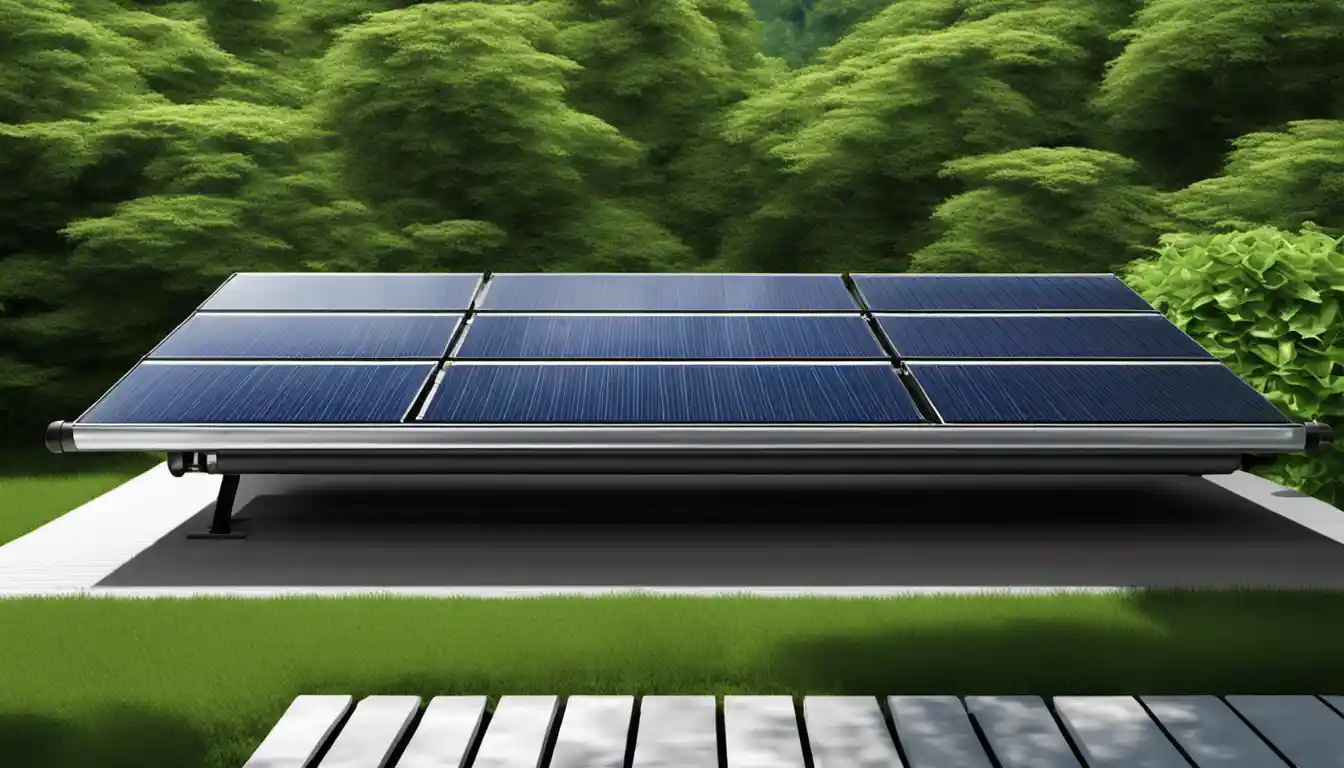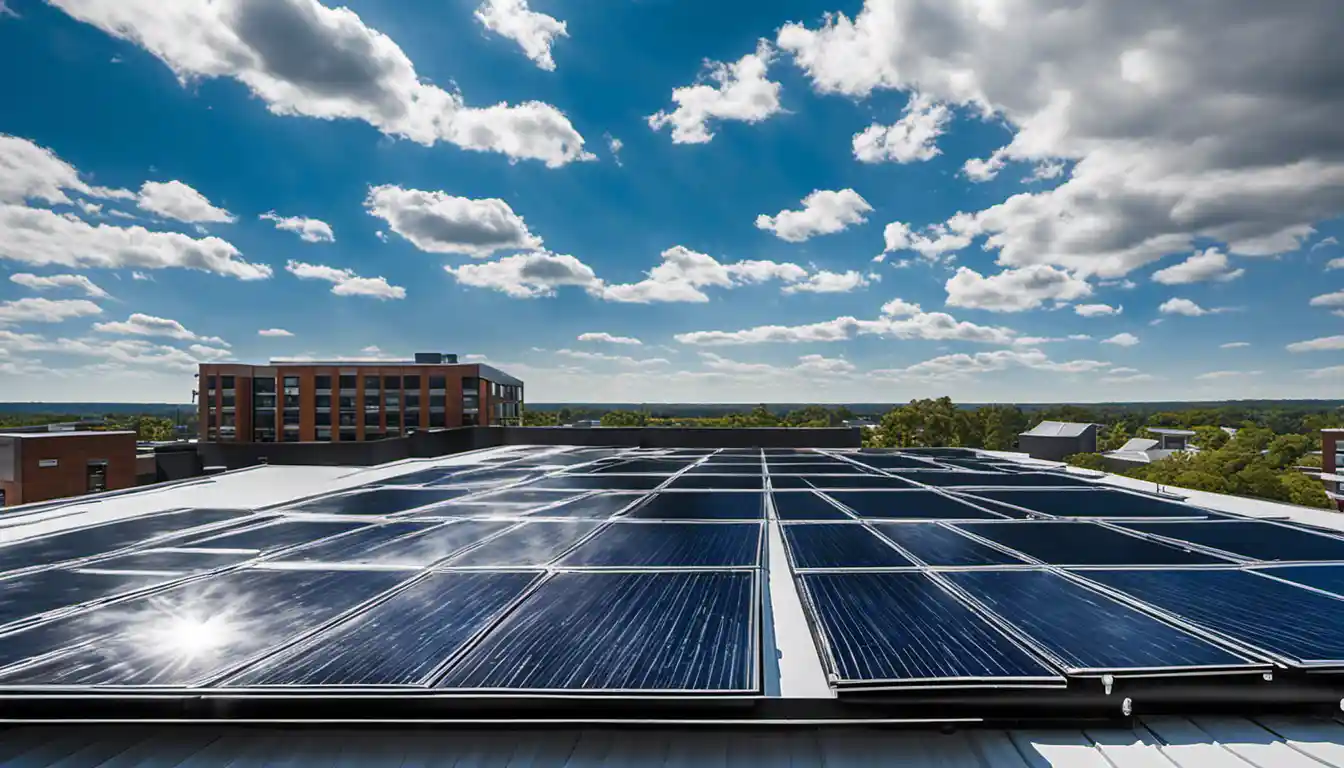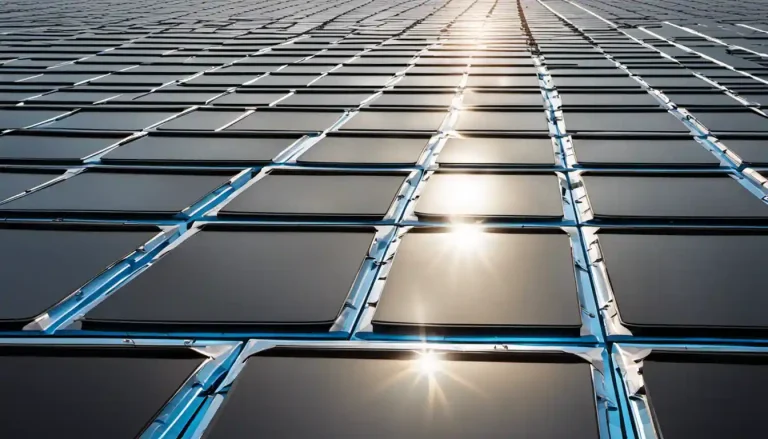Overview of Solar Power and Water Heaters
Yes, you can run a water heater on solar power. Solar water heaters use solar panels to collect heat from the sun and use it to heat water. This can significantly reduce your electricity bills and is a sustainable and environmentally friendly option for water heating.
As a solar energy expert whose passion for renewable energy has spanned two decades, I see solar power as the pivotal, game-changing technology of our era. What’s even more exciting is how solar technology is continually evolving and branching out into various aspects of our lives. And most notably, one of the essential household utilities – our water heaters.
Brief Introduction to Solar Panels
Solar panels are devices that convert energy from the sun into electricity. They can be used in a variety of applications, from simple garden lights to complex systems for energy production in businesses and homes. But over the years, a revolutionary shift has been taking place. We’re moving from merely generating electricity using solar panels to harnessing their energy for specific purposes: heating your water.
The Need for Solar Panels in Modern Household
Our home’s green footprint must be increasing day by day. The energy consumption is real, so finding sustainable, efficient alternatives is a necessity. That’s where solar power comes in. Once mounted, solar panels tirelessly work to convert the sun’s relentless energy into usable power. Imagine utilizing that power source to take your chilly morning showers!
How Solar Power Impacts Traditional Water Heaters
Traditional water heaters consume an ample chunk of your homes’ energy. How wonderful would it be if we could slash that off your monthly bills? That’s precisely where the question, ‘can you run a water heater on solar power?’ arises. Spoiler: the answer is a resounding yes!
Swap from Traditional Heaters to Solar Water Heaters
Swapping your conventional water heater for a solar-powered one is a smart step towards sustainable living. While this transition seems intimidating, it is simpler than it appears. Once you grasp the fundamentals of solar water heating systems, which we’ll get down to, the journey becomes a cakewalk.
Details of Solar Water Heaters
Distinction Between Solar Water Heating and Solar with Heating Heat Pumps
Solar water heating and solar with heating heat pumps are two different methods of heating water using the sun’s energy. The first uses solar thermal collectors directly to heat water. The latter uses solar panels to generate electricity, which runs a heat pump, subsequently heating the water. Understand more about these systems here.
Key Features of Heat Pumps in Solar Water Heaters

Heat pumps in solar water heaters almost function like a refrigerator, just in reverse. They take heat from the surroundings and pump it into the water tank. Beyond heating your water, they also act as high-efficiency dehumidifiers. Cool, right?
Heat Pumps And Their Role As Basement Dehumidifiers
When a heat pump is operating, it extracts heat from its surroundings – this process also removes moisture. Therefore, if you install a heat pump water heater in your basement, it will also work as a dehumidifier, giving you a more comfortable living space.
Types of Solar Water Heating Systems
‘So, how many solar panels does it take to run a hot water heater?’ you might wonder. The answer lies in understanding that not all solar water heating systems are built the same. They broadly fall into two categories: active and passive systems.
Active Solar Water Heating Systems
Active systems use pumps and controls to circulate water. There are two types – Direct or Open-Loop Circulating Systems, and Indirect Circulating Systems.
Explanation of Direct or Open-Loop Circulating Systems
In Direct Circulating Systems, pumps circulate household water through collectors and into the home. They work well in climates that rarely freeze.
Understanding of Indirect Circulating Systems
Indirect Circulating Systems use a “heat-transfer” fluid with antifreeze protection that circulates through collectors. They’re suitable for freezing conditions.
Passive Solar Water Heating Systems
When it comes to reliability, passive systems have the upper hand. They come in two types: Integral Collector Storage Systems and Thermosiphon Systems.
Integral Collector Storage Systems Explained

These systems capture heat more efficiently because of their black absorptive plates. They are a fantastic option for areas with frequent power shortages.
The Working of Thermosiphon Systems
Water flows in this system when warm water rises as cooler water sinks. The collector heats the water, which then rises and moves to the tank.
Solar Panels Requirement and Energy Production
Next, let’s dive into understanding the number of solar panels required for a hot water heater and factor in the energy they produce.
Calculation of Solar Panels Required for a Hot Water Heating System
The number of panels required to run a hot water heater depends on various factors such as your geographical location, the type of solar panels you use, and the size of your household. However, on average, about 20 sqm of solar thermal panels are usually sufficient for a typical home.
Understanding of Energy Produced by a Solar Panel
How much energy a solar panel produces relies significantly on sunlight and the size of the solar panel. The more direct sunlight a panel gets, the more electricity it can generate, which means more hot water for those warm, relaxing baths!
Understanding the Home Installation of Solar Water Heaters
Assessing the Home Suitability for Installation of Solar Water Heaters
Before installing a solar water heater, determine your solar resources, size requirements, the economics of a solar water heater, local regulations and codes, and safety issues.
Key Considerations and Frequently Asked Questions

I believe by now, you’re more confident about answering, “can you run a water heater on solar power?” Now, let’s explore some other popular queries.
Are Solar Water Heaters Worth It?
Absolutely. Not only do they slash down your power bills, but they also contribute to a greener, cleaner environment.
Can You Heat Water with a Single Solar Panel?
Yes, although it may not be very efficient. Depending on the sunlight, a single panel can generate about 250-350W of power.
How Many Solar Panels are Required to Run a 1500w Water Heater?
To run a 1500W water heater, you would need around 4-6 solar panels, depending on the wattage of your panels.
Financial Facets of Solar Heaters
Investing in solar water heating systems might seem hefty initially, but with various financial incentives and long-term savings, they pay for themselves.
Insights into Financial Incentives Available in Many States
Several state governments and the federal government offer tax credits, rebates, and other incentives to support renewable energy usage.
Rebates Available for Heat Pumps: A Brief Overview
Local power companies offer significant rebates for the installation of high-efficiency heat pump systems, promoting greener energy alternatives.
Take your step toward a sustainable future. Invest in solar-powered water heaters and make those soothing hot showers all the more fulfilling, knowing you’re contributing to preserving our planet. Solar power isn’t just our future; it’s our present too. Happy solar bathing!



